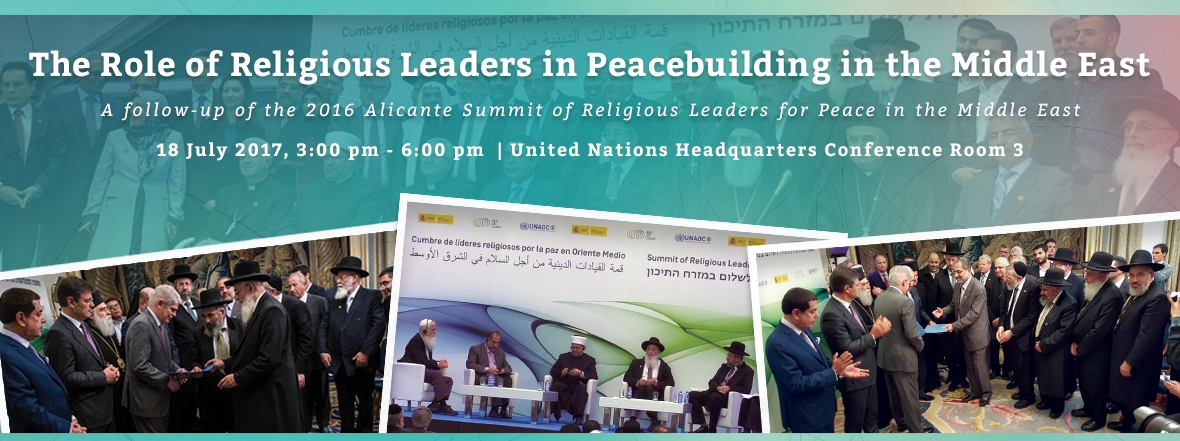The United Nations Alliance of Civilizations (UNAOC) is organizing a panel discussion on
“The Role of Religious Leaders in Peacebuilding in the Middle East”. The event will take place on 18 July 2017 at the United Nations headquarters, New York. The opening session will feature the United Nations Secretary-General, the Minister of Foreign Affairs and Cooperation of Spain, the High Representative for the United Nations Alliance of Civilizations and three religious leaders representing the three monotheistic religions of the Holy Land – Muslim, Jewish and Christian.
The panel discussion will serve as a follow-up to the November 2016 Summit of Religious Leaders for Peace in the Middle East, held in Alicante, Spain – an initiative facilitated by the Spanish Government and co-sponsored by UNAOC.
The stability of the Middle East region is crucial to the peace and stability of the world. The fifty long years of the Arab-Israeli conflict have fueled cycles of violence and retribution. Moreover, the prolonged conflict has been misappropriated and exploited by extremist groups and elements.
In this context, religious leaders in the Holy Land play a key role in peacebuilding through promoting peaceful co-existence and tolerance as well as providing a counter-narrative to violent extremism.
Religious ideologies continue to carry great weight with a vast majority of people throughout the Middle East. For some, this may pose a challenge for peace and stability. But it may also provide an opportunity for a solution. As such, public discourse within and between Jewish and Muslim religious leaders who promote the culture of peace inherent in these religions, maybe a way forward to ease the political tension in the Holy land.
With such influence within their respective communities, religious leaders play a role in building trust and mutual understanding. They summon their communities to live in peace side by side in the Holy Land.
This initiative is based on the assumption that true peace between Israelis and Palestinians is possible when mutual trust exists between them. The goal of the initiative is to prepare the hearts and minds for true peace in the Middle East by involving religious leadership from both sides who voice a common message of peaceful coexistence as an essential element for building and sustaining peace.



